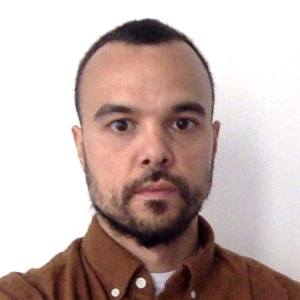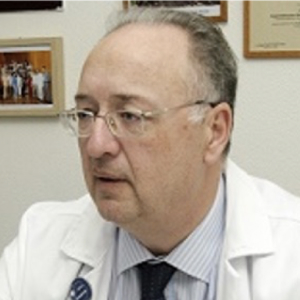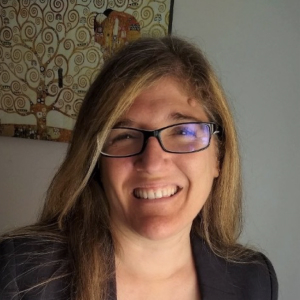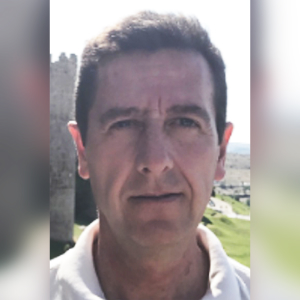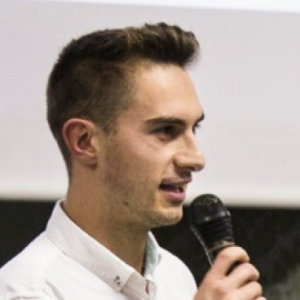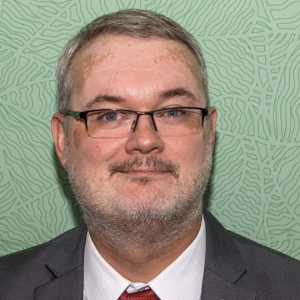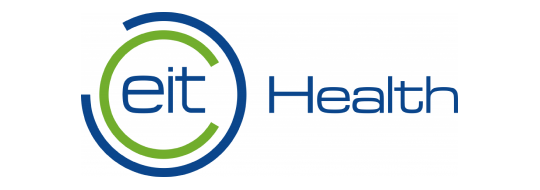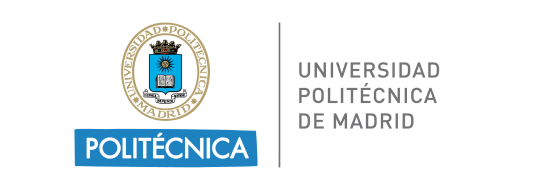


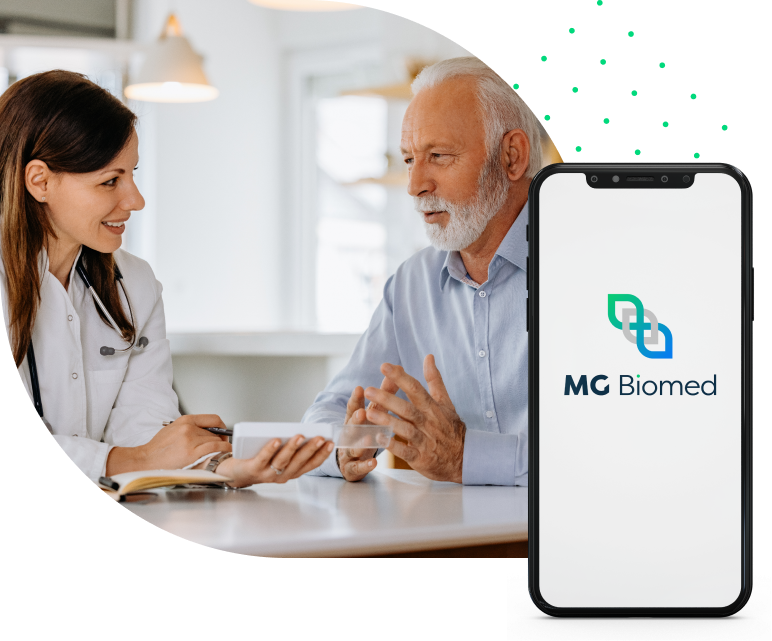
MG Biomed is a technological infrastructure to prevent disability. The approach is to monitor the Intrinsic Capacity (physical, mental and psychological) from home in older than 65 to provide the elderly tailored interventions.
The platform involves all the relevant actors (patients, caregivers, healthcare professionals –primary care and specialists-doctors and nurses).
Started as a research project at the Department of Geriatrics at Hospital Universitario de Getafe in collaboration with the Centro de Tecnología Biomédica belonging to the Universidad Politécnica de Madrid.
The project team has been led by Drs. Leocadio Rodríguez Mañas (key opinion leader in frailty) and Rodrigo Pérez Rodríguez together with doctors Elena Villalba and Xavier Ferrer.
Elena Villalba Mora, a Telecommunications Engineer and PhD in Biomedical Engineering from UPM, was recognized in 2025 by Actúa UPM as one of the «Women Who Transform Science.» With a distinguished career in research, teaching, and technology transfer, she has worked at CDTI, the European Commission, and the Biomedical Research Foundation of the University Hospital of Getafe. Since 2015, she has been a professor at the ETSI Computer Science UPM, where she has led 16 competitive projects and managed over 2.7 million euros in research contracts. An author of 30 scientific articles, she has also made a significant social impact, being a founding partner of MG Biomed S.L., promoter of initiatives such as “Mejora la Memoria,” and organizer of technological activities for young people. Additionally, she collaborates as an expert with the European Commission and leads a Corporate Chair with Innova-tsn.

The Institute for Scientific Information at Clarivate has published its prestigious global ranking, highlighting the world’s most influential researchers. This list recognizes experts ranked in the top 1% for the highest number of citations in scientific publications within their respective fields. Among them is Leocadio Rodríguez Mañas, Head of Geriatrics at the Getafe University Hospital and co-founder of MG BIOMED, solidifying his position as a leading figure in the field of Geriatrics worldwide.
In 2024, the prestigious ENNOVA awards, in the Digital Transformation category, recognized the University Hospital of Getafe for the outstanding work of its Geriatrics team, led by the renowned Dr. Rodríguez Mañas.

In 2020, the entrepreneurship program at the Polytechnic University of Madrid (UPM) recognized a group of talented entrepreneurs with the prestigious Actúa UPM 17 Award. The finalists, Elena Villalba, Xavier Ferre, Ismael González, Rodrigo Pérez and Dr. Rodríguez Mañas., were honored for their brilliant proposal, standing out among the best business ideas of the year. This recognition not only celebrates their creativity and innovation but also their ability to transform ideas into high-impact projects in the business world.

In 2019, the POSITIVE project, developed by UPM and the Getafe University Hospital (core of Frail STOP), was recognized as a flagship project in the EIT Health innovation program.
In 2017, Ismael González Oviedo (Computer Engineer), was awarded as a finalist in the «Best Startup» category for his business idea QuieroLibros.com in the Actúa UPM 14 business creation competition. His work led to the publication of more than 20 applications/websites, accumulating over 1,000,000 downloads.
His professional career has been complemented by entrepreneurship, participating in the business idea FrailStop. Additionally, he has served as the lead developer for POSITIVE, making key decisions that led to its recognition as a flagship project within the EIT Health initiatives.
We have developed a technological platform able to detect, monitor and intervene, in a non-intrusive way, on this older people to avoid the development of disability.
The platform stems from the findings in several research funded projects and in the large experience of the team, longer than 30 years, in the field of geriatrics, frailty and functional decline, biomedical technology and business development.
Platform combines, sensors, Artificial Intelligence-based algorithms for decision-making support, interventions (personalized physical exercise programs, nutritional support and counseling, system to correct polypharmacy), monitoring (through sensors-based and self-applied questionnaires) and connection among formal (physicians, nurses, OT…) and non-formal careers (family, friends), able to provide a comprehensive approach to the yet uncovered needs of the user.
App: FrailStop

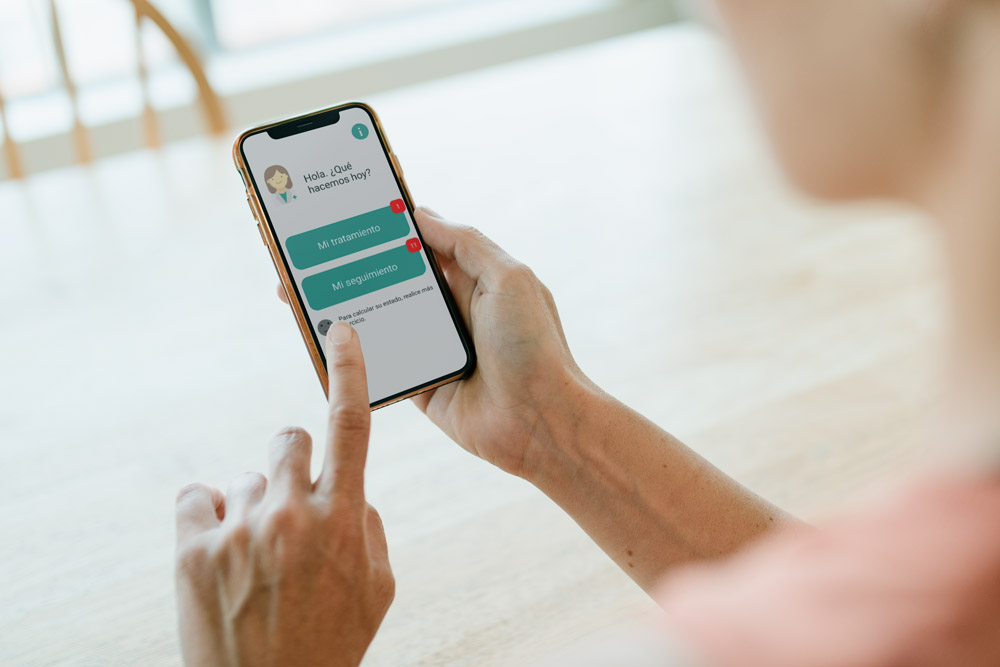
FrailStop is an innovative project that is changing the way we approach frailty in the elderly. Frailty is a health condition that affects many older adults, making them more vulnerable to injuries and illnesses. FrailStop is here to make a difference by proactively detecting and improving frailty, and in many cases, even reversing it.
FrailStop Works
FrailStop employs advanced technology to accurately assess, treat and monitor frailty. Through sensors, data tracking, Artificial Intelligence, and personalized analysis, we provide healthcare professionals and older adults with the information they need to take preventive measures.
It offers a wide range of benefits, including:
- Early detection of frailty
- Personalized improvement plan
- Improved quality life of the patients and their caregiver
- Improved functional status
- Support for healthcare professionals
Validations

POSITIVE
Enhancing Quality of Life in an Ageing Society
Extending life expectancy is no longer the greatest challenge for medical science. The true challenge now lies in improving the quality of life in our later years. Preventing disability is essential to achieving this goal. To make this a reality, we need a paradigm shift—from focusing on disease to focusing on capacity. Instead of simply diagnosing diseases, we must prioritize monitoring the health trajectory throughout a person’s life, ensuring they remain independent and healthy for as long as possible.
Our Goals
- Achieve 80% adherence among elderly users of the app, ensuring consistent engagement and support for healthier living.
- Successful validation across three countries: Spain, Sweden, and Poland, expanding our impact and gathering diverse insights.
- Validate with 75 patients, gathering real-world feedback and data to refine and enhance the experience.
- Observable improvements in 3 months and significant real-world improvements in 6 months, demonstrating the app’s effectiveness in enhancing the quality of life for users.
Impact
POSITIVE brings the management of frailty closer to the elderly by providing specialized and primary care directly at home. This approach offers significant benefits for both patients and their families, ensuring more personalized and accessible healthcare. For patients, this translates into reduced healthcare costs—helping achieve a 10% reduction in hospitalisation, emergency, and specialized care costs, as well as a 3% annual decrease in total health expenses. Ultimately, POSITIVE not only improves the quality of life for the elderly but also offers more efficient, cost-effective care for all.

ActiveUP
Our Proposal
This proposal builds on the work, experience (Alberto et al., 2017), and results of two previous projects: FACET and POSITIVE. Both projects were funded by the European Institute of Technology through the EIT-Health network and involved the technical and clinical teams behind this proposal.
In the FACET project, a home care system was developed for monitoring and managing frailty. This system included a frailty monitoring kit capable of detecting changes in two of the most informative functional variables: gait speed and lower limb strength. The kit consists of a gait speed sensor, a lower limb strength sensor, and a mobile app to control both. Additionally, the app supports the self-administration of standard Comprehensive Geriatric Assessment (CGA) questionnaires.
POSITIVE expanded this home care system to include both formal caregivers, such as primary care providers, and informal caregivers. However, these projects and solutions lacked personalization and adaptation, including patient motivation, which impacted adoption and adherence levels. ActiveUP will address these gaps by incorporating personalization, adaptation, and the consideration of additional patient context data, such as environmental information.
Our Goals
-
Adaptation of Multicomponent Interventions
We defined personalized interventions considering individual characteristics like functional ability, cognition, and motivation, including physical exercise, nutrition, and medication adjustments to prevent polypharmacy. -
Discreet Monitoring and Analysis
We developed a non-intrusive monitoring system for frailty in unsupervised home settings, using a wearable sensor and IoT architecture. Data is sent directly to the cloud for monitoring, with promising results from a 6-month observational study. -
Personalization and Motivation for Older Adults
We created a motivational component that adjusts strategies based on patient motivation, using the Transtheoretical Model of Behavior Change. This goal is fully achieved, with a functional system tested internally, now transferred to the MOTIVA project for real patient trials. -
Development of ActiveUP System
We successfully developed the complete ActiveUP system, integrating non-intrusive monitoring, personalized care, and cloud-based subsystems, alongside all necessary software and hardware components.
Impact
Frailty can be improved through intervention, particularly with pharmacological and non-pharmacological approaches. Non-pharmacological interventions, such as physical activity and nutrition, are crucial in managing frailty. Physical activity is effective in preventing functional decline, but research suggests exercise prescriptions need to be personalized to ensure sufficient stimulation for improving both functional and cognitive abilities. Malnutrition, prevalent in older populations, is also a key risk factor for frailty onset.
A major challenge is treatment adherence. Even if patients understand the long-term benefits of lifestyle changes, a decline in motivation can lead to treatment abandonment or non-compliance. The Transtheoretical Model of Behavior Change is widely applied in healthcare to address this issue, differentiating between motivational states, traits, and skills. Identifying these traits can lead to more effective, personalized interventions.
Home-based healthcare systems for chronic disease management have been a focus for years but have had limited clinical impact. For success, patient participation is critical, but motivating patients remains a challenge for primary care physicians. Effective implementation of home care systems requires addressing patient motivation, promoting empowerment, and tailoring interventions to the patient’s stage of behavior change. Additionally, clinicians face concerns about accountability, workload, and the monetization of their services.
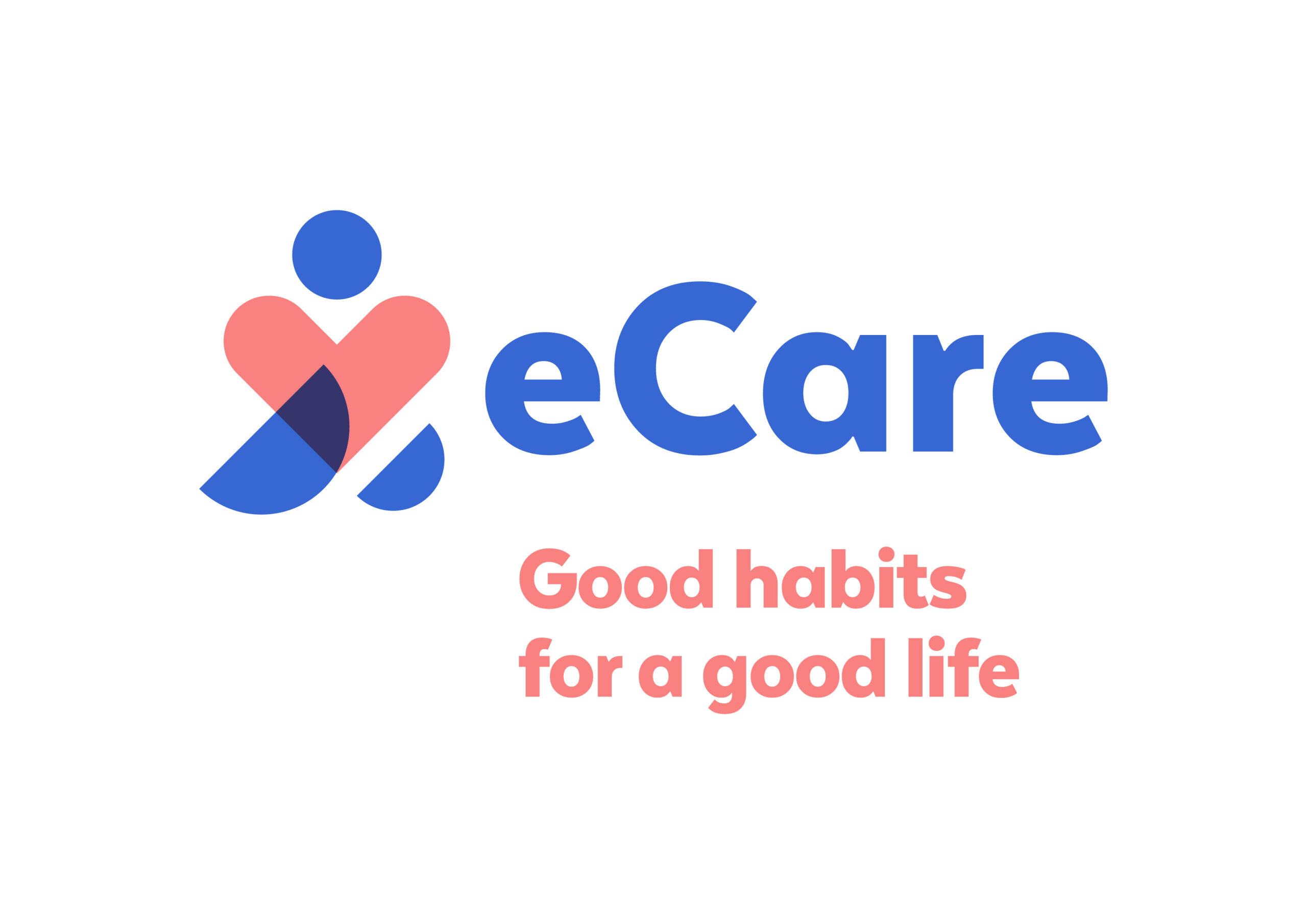
eCare
Our Proposal
eCare aims to revolutionize frailty management by integrating personalized, home-based interventions that enhance patient outcomes and reduce healthcare costs. Our approach combines non-pharmacological strategies—such as tailored physical activity and nutritional guidance—with cutting-edge digital tools to monitor and support patients in real-time.
A key challenge in frailty care is adherence. Even when patients understand the benefits of lifestyle changes, motivation can decline over time. eCare addresses this through adaptive interventions that consider individual motivational traits, ensuring sustained engagement.
By leveraging smart monitoring systems and AI-driven analytics, eCare empowers both patients and caregivers, facilitating early detection of health risks and personalized treatment plans. This proactive approach not only improves patient well-being but also optimizes healthcare resources, reducing hospitalizations and overall medical costs.
Our Goals
-
Finalist in the eCare Project, recognized for its innovative approach to frailty management.
-
Validated in Italy, Germany, and Spain (Barcelona and Santander), demonstrating effectiveness across diverse healthcare settings.
-
Seamless integration with Televés systems, enhancing remote monitoring and patient care capabilities.

Integracam
A Pioneering Public Procurement of Innovation in Madrid’s SERMAS
The INTEGRA-CAM project, an innovative ICT Model for Enhancing Intrinsic Capacity, introduces a groundbreaking technological ecosystem for home monitoring and tracking of older adults’ intrinsic capacity. Defined by the World Health Organization (WHO), intrinsic capacity is the combination of an individual’s physical, mental, and psychological abilities, encompassing frailty.
This ecosystem aims to enable a comprehensive care model, connecting all key stakeholders: patients, caregivers, primary care professionals, and specialized geriatric teams.
The personalized intervention approach in INTEGRA-CAM builds upon the extensive research expertise of the Hospital Universitario de Getafe and Universidad Politécnica de Madrid, leveraging EU-funded projects such as:
-
VIVIFRAIL, a structured physical activity program
-
MIDFRAIL, a multicomponent intervention combining education, physical exercise, and nutrition
-
STOPP-START, a framework for optimizing polypharmacy management
By integrating these proven methodologies, INTEGRA-CAM sets a new standard for holistic, technology-driven elderly care.

